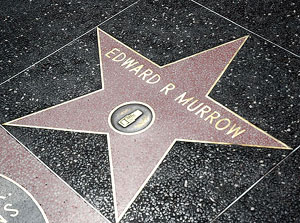A Special Comment About LyingKeith Olbermann on the Difference Between Terrorists and Critics
SPECIAL COMMENT by Keith Olbermann, Anchor, 'Countdown' MSNBC
While the leadership in Congress has self-destructed over the revelations of an unmatched, and unrelieved, march through a cesspool ...
While the leadership inside the White House has self-destructed over the revelations of a book with a glowing red cover ...
The president of the United States - unbowed, undeterred and unconnected to reality - has continued his extraordinary trek through our country rooting out the enemies of freedom: the Democrats.
Yesterday at a fundraiser for an Arizona congressman, Mr. Bush claimed, quote, "177 of the opposition party said, 'You know, we don't think we ought to be listening to the conversations of terrorists.'"
The hell they did.
One hundred seventy-seven Democrats opposed the president's seizure of another part of the Constitution.
Not even the White House press office could actually name a single Democrat who had ever said the government shouldn't be listening to the conversations of terrorists.
President Bush hears what he wants.
Tuesday, at another fundraiser in California, he had said, "Democrats take a law enforcement approach to terrorism. That means America will wait until we're attacked again before we respond."
Mr. Bush fabricated that, too.
And evidently he has begun to fancy himself as a mind reader.
"If you listen closely to some of the leaders of the Democratic Party," the president said at another fundraiser Monday in Nevada, "it sounds like they think the best way to protect the American people is — wait until we're attacked again."
The president doesn't just hear what he wants.
He hears things that only he can hear.
It defies belief that this president and his administration could continue to find new unexplored political gutters into which they could wallow.
Yet they do.
It is startling enough that such things could be said out loud by any president of this nation.
Rhetorically, it is about an inch short of Mr. Bush accusing Democratic leaders, Democrats, the majority of Americans who disagree with his policies of treason.
But it is the context that truly makes the head spin.
Just 25 days ago, on the fifth anniversary of the 9/11 attacks, this same man spoke to this nation and insisted, "We must put aside our differences and work together to meet the test that history has given us." Mr. Bush, this is a test you have already failed.
If your commitment to "put aside differences and work together" is replaced in the span of just three weeks by claiming your political opponents prefer to wait to see this country attacked again, and by spewing fabrications about what they've said, then the questions your critics need to be asking are no longer about your policies.
They are, instead, solemn and even terrible questions, about your fitness to fulfill the responsibilities of your office.
No Democrat, sir, has ever said anything approaching the suggestion that the best means of self-defense is to "wait until we're attacked again."
No critic, no commentator, no reluctant Republican in the Senate has ever said anything that any responsible person could even have exaggerated into the slander you spoke in Nevada on Monday night, nor the slander you spoke in California on Tuesday, nor the slander you spoke in Arizona on Wednesday ... nor whatever is next.
You have dishonored your party, sir; you have dishonored your supporters; you have dishonored yourself.
But tonight the stark question we must face is - why?
Why has the ferocity of your venom against the Democrats now exceeded the ferocity of your venom against the terrorists?
Why have you chosen to go down in history as the president who made things up?
In less than one month you have gone from a flawed call to unity to this clarion call to hatred of Americans, by Americans.
If this is not simply the most shameless example of the rhetoric of political hackery, then it would have to be the cry of a leader crumbling under the weight of his own lies.
We have, of course, survived all manner of political hackery, of every shape, size and party. We will have to suffer it, for as long as the Republic stands.
But the premise of a president who comes across as a compulsive liar is nothing less than terrifying.
A president who since 9/11 will not listen, is not listening - and thanks to Bob Woodward's most recent account - evidently has never listened.
A president who since 9/11 so hates or fears other Americans that he accuses them of advocating deliberate inaction in the face of the enemy.
A president who since 9/11 has savaged the very freedoms he claims to be protecting from attack - attack by terrorists, or by Democrats, or by both - it is now impossible to find a consistent thread of logic as to who Mr. Bush believes the enemy is.
But if we know one thing for certain about Mr. Bush, it is this: This president - in his bullying of the Senate last month and in his slandering of the Democrats this month — has shown us that he believes whoever the enemies are, they are hiding themselves inside a dangerous cloak called the Constitution of the United States of America.
How often do we find priceless truth in the unlikeliest of places?
I tonight quote not Jefferson nor Voltaire, but Cigar Aficionado Magazine.
On Sept. 11th, 2003, the editor of that publication interviewed General Tommy Franks, at that point, just retired from his post as commander-in-chief of U.S. Central Command - of Cent-Com.
And amid his quaint defenses of the then-nagging absence of weapons of mass destruction in Iraq, or the continuing freedom of Osama bin Laden, General Franks said some of the most profound words of this generation.
He spoke of "the worst thing that can happen" to this country:
First, quoting, a "massive casualty-producing event somewhere in the Western World - it may be in the United States of America."
Then, the general continued, "the Western World, the free world, loses what it cherishes most, and that is freedom and liberty we've seen for a couple of hundred years, in this grand experiment that we call democracy."
It was this super-patriotic warrior's fear that we would lose that most cherished liberty, because of another attack, one - again quoting General Franks - "that causes our population to question our own Constitution and to begin to militarize our country in order to avoid a repeat of another mass-casualty-producing event. Which, in fact, then begins to potentially unravel the fabric of our Constitution."
And here we are, the fabric of our Constitution being unraveled, anyway.
Habeus corpus neutered; the rights of self-defense now as malleable and impermanent as clay; a president stifling all critics by every means available and, when he runs out of those, by simply lying about what they said or felt.
And all this, even without the dreaded attack.
General Franks, like all of us, loves this country, and believes not just in its values, but in its continuity.
He has been trained to look for threats to that continuity from without.
He has, perhaps been as naïve as the rest of us, in failing to keep close enough vigil on the threats to that continuity from within.
Secretary of State Rice first cannot remember urgent cautionary meetings with counterterrorism officials before 9/11. Then within hours of this lie, her spokesman confirms the meetings in question. Then she dismisses those meetings as nothing new — yet insists she wanted the same cautions expressed to Secretaries Ashcroft and Rumsfeld.
Mr. Rumsfeld, meantime, has been unable to accept the most logical and simple influence of the most noble and neutral of advisers. He and his employer insist they rely on the "generals in the field." But dozens of those generals have now come forward to say how their words, their experiences, have been ignored.
And, of course, inherent in the Pentagon's war-making functions is the regulation of presidential war lust.
Enacting that regulation should include everything up to symbolically wrestling the Chief Executive to the floor.
Yet - and it is Pentagon transcripts that now tell us this - evidently Mr. Rumsfeld's strongest check on Mr. Bush's ambitions, was to get somebody to excise the phrase "Mission Accomplished" out of the infamous Air Force Carrier speech of May 1st, 2003, even while the same empty words hung on a banner over the President's shoulder.
And the vice president is a chilling figure, still unable, it seems, to accept the conclusions of his own party's leaders in the Senate, that the foundations of his public position, are made out of sand.
There were no weapons of mass destruction in Iraq.
But he still says so.
There was no link between Saddam Hussein and al Qaida.
But he still says so.
And thus, gripping firmly these figments of his own imagination, Mr. Cheney lives on, in defiance, and spreads - around him and before him - darkness, like some contagion of fear.
They are never wrong, and they never regret - admirable in a French torch singer, cataclysmic in an American leader.
Thus, the sickening attempt to blame the Foley scandal on the negligence of others or "the Clinton era" - even though the Foley scandal began before the Lewinsky scandal.
Thus, last month's enraged attacks on this administration's predecessors, about Osama bin Laden—a projection of their own negligence in the immediate months before 9/11.
Thus, the terrifying attempt to hamstring the fundament of our freedom - the Constitution - a triumph for al Qaida, for which the terrorists could not hope to achieve with a hundred 9/11's.
And thus, worst of all perhaps, these newest lies by President Bush about Democrats choosing to await another attack and not listen to the conversations of terrorists.
It is the terror and the guilt within your own heart, Mr. Bush, that you redirect at others who simply wish for you to temper your certainty with counsel.
It is the failure and the incompetence within your own memory, Mr. Bush, that leads you to demonize those who might merely quote to you the pleadings of Oliver Cromwell: "I beseech you, in the bowels of Christ, think it possible you may be mistaken."
It is not the Democrats whose inaction in the face of the enemy you fear, Sir.
It is your own - before 9/11 - and (and you alone know this), perhaps afterwards.
Mr. President, these new lies go to the heart of what it is that you truly wish to preserve.
It is not our freedom, nor our country - your actions against the Constitution give irrefutable proof of that.
You want to preserve a political party's power. And obviously you'll sell this country out, to do it.
These are lies about the Democrats - piled atop lies about Iraq - which were piled atop lies about your preparations for al Qaeda.
To you, perhaps, they feel like the weight of a million centuries - as crushing, as immovable.
They are not.
If you add more lies to them, you cannot free yourself, and us, from them.
But if you stop - if you stop fabricating quotes, and building straw-men, and inspiring those around you to do the same - you may yet liberate yourself and this nation.
Please, sir, do not throw this country's principles away because your lies have made it such that you can no longer differentiate between the terrorists and the critics.
Copyright © 2006 MSNBC Interactive







